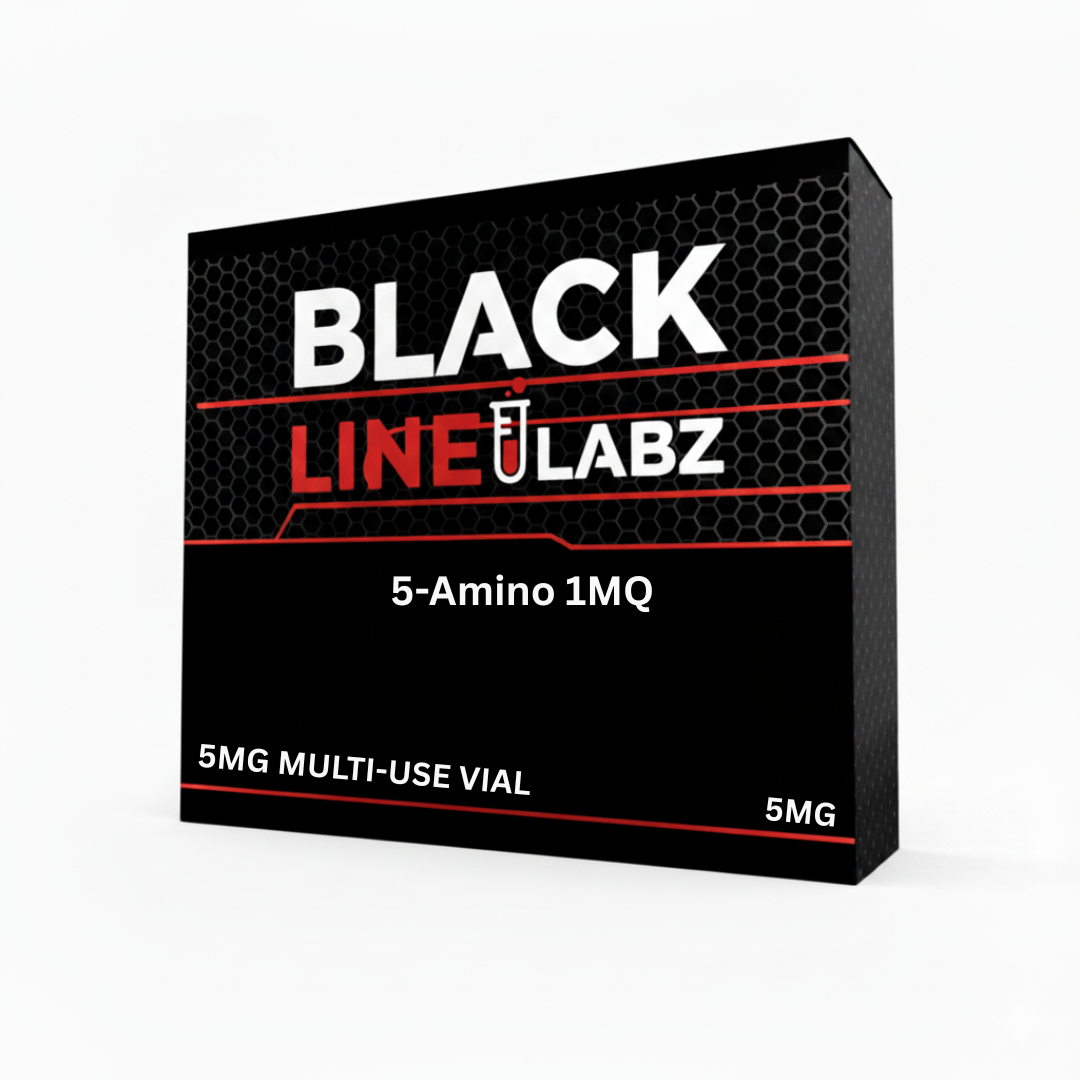5-Amino 1MQ
$198.99
- High-purity 5-Amino 1MQ for laboratory research into metabolism, obesity, and cellular energy regulation. A potent, small-molecule inhibitor of the NNMT enzyme.
5-Amino-1-methylquinolinium, commonly known as 5-Amino 1MQ, is a small molecule compound investigated for its potential to modulate cellular metabolism. Although often discussed alongside metabolic peptides due to its functional applications, it is chemically distinct and is not a peptide. Its 5 role in a research context is as a specific and potent inhibitor of the enzyme nicotinamide N-methyltransferase (NNMT), an enzyme that is highly expressed in adipose (fat) tissue and plays a significant role in energy homeostasis. By targeting this enzyme, 5-Amino 1MQ offers a novel mechanism for studying the treatment of obesity and related metabolic disorders.
Primary Uses and Potential Benefits in a Research Context
The main research application for 5-Amino 1MQ is the investigation of diet-induced obesity and metabolic syndrome. By blocking the NNMT enzyme, 5-Amino 1MQ has been shown in research models to increase the basal metabolic rate (BMR), allowing the body to burn fat for energy more efficiently while preserving lean muscle mass.
Potential benefits observed in preclinical studies include:
- Reduction of Adiposity: It has been shown to reduce fat accumulation by preventing the slowdown of fat cell metabolism.
- Increased Energy Expenditure: By increasing metabolic rate, it may help research subjects burn more calories.
- Improved Metabolic Health: Research suggests it may improve insulin sensitivity and support cardiovascular and kidney health.
- Anti-Aging Research: Through its effects on the NAD⁺/SIRT1 pathway, it has implications for research into cellular aging and longevity.
How it Works (Mechanism of Action)
The mechanism of action of 5-Amino 1MQ is centered on its inhibition of the NNMT enzyme. NNMT’s primary function is to methylate nicotinamide (a form of vitamin B3), a process that consumes methyl donors and regulates the intracellular pool of nicotinamide adenine dinucleotide (NAD⁺). Overactivity of NNMT in fat tissue is associated with increased fat cell growth and a depletion of NAD⁺, which is critical for energy production and cellular repair.
By inhibiting NNMT, 5-Amino 1MQ triggers a cascade of beneficial metabolic events:
- Increased NAD⁺ Levels: Blocking NNMT prevents the breakdown of nicotinamide, leading to a significant increase in the cellular concentration of NAD⁺.
- Activation of SIRT1: NAD⁺ is a crucial cofactor for the sirtuin family of proteins. Increased NAD⁺ levels activate Sirtuin-1 (SIRT1), often referred to as the “longevity gene”.
- Enhanced Metabolism: Activated SIRT1 improves mitochondrial function, increases fat oxidation (fat burning), and enhances overall cellular energy metabolism.
This targeted modulation of the NNMT–NAD⁺–SIRT1 pathway allows for metabolic enhancement without relying on central nervous system stimulants.
Potential Side Effects in Research Studies
As a research chemical, comprehensive human clinical data on the side effects of 5-Amino 1MQ is limited. However, based on its mechanism and anecdotal reports from non-clinical use, several potential side effects have been noted. These are generally mild and may include headache, nausea, and insomnia or difficulty sleeping, especially if administered late in the day.
Chronic high-dose administration may present theoretical risks, such as overstimulation of metabolic pathways, which could lead to jitteriness or adrenal fatigue. Because NNMT is involved in methylation, its long-term inhibition could potentially alter the body’s methylation balance, though this requires further investigation. Due to its influence on cellular metabolism, its use in models of active cancer or hormone-sensitive conditions is cautioned against without direct supervision.
Frequently Asked Questions (FAQs)
- Is 5-Amino 1MQ a peptide? Despite being sold for similar research purposes, 5-Amino 1MQ is a small molecule inhibitor, not a peptide. It does not have a peptide structure.
- What is the primary target of 5-Amino 1MQ? Its primary target is the enzyme Nicotinamide N-methyltransferase (NNMT), which it inhibits. This action is most prominent in adipose tissue where NNMT is highly active.
- What is the significance of the NAD⁺ and SIRT1 pathway? This pathway is a central regulator of cellular energy, metabolism, and longevity. By increasing NAD⁺ and activating SIRT1, 5-Amino 1MQ is being investigated for its potential to reverse metabolic slowdowns associated with diet-induced obesity and aging.
- How is 5-Amino 1MQ typically administered in research? In preclinical studies, it has been administered via both subcutaneous injection and oral routes, with oral administration requiring a significantly higher dosage.


Reviews
There are no reviews yet.